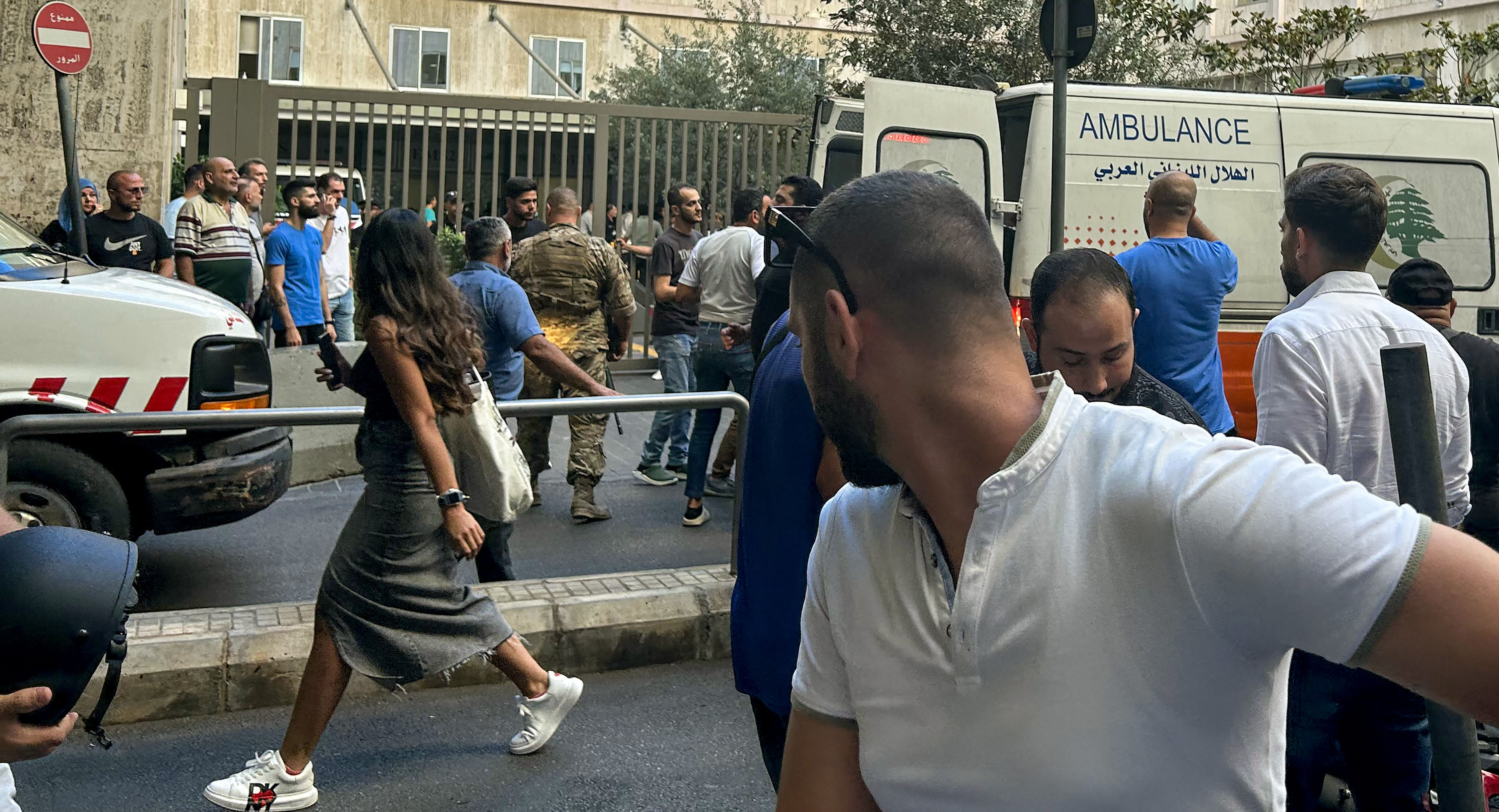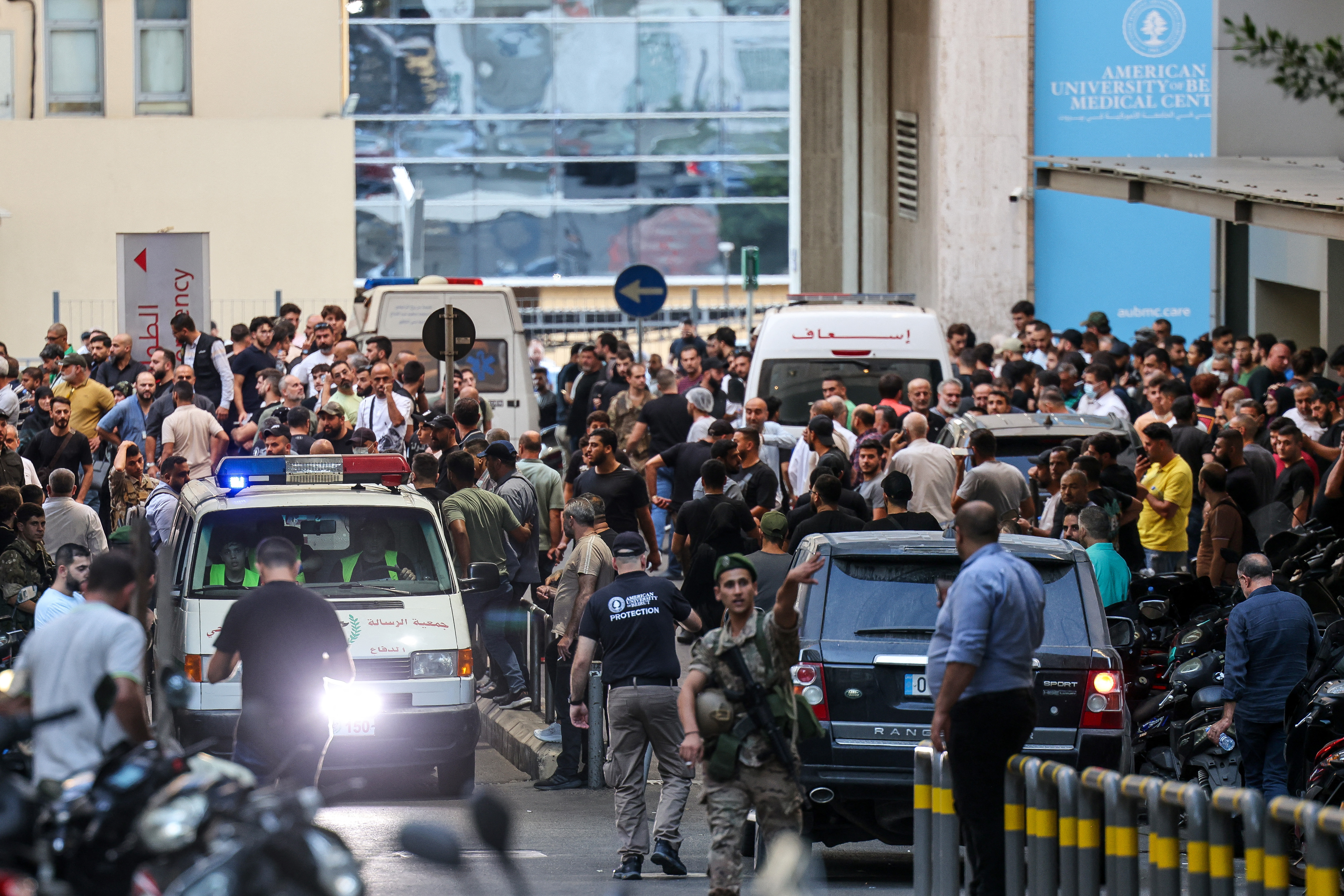A second wave of device explosions hit Lebanon on Wednesday, killing 20, injuring 450 others and igniting blazes across the country a day after hundreds of pagers belonging to Hezbollah members detonated in an unprecedented attack on the militant group.
The Lebanese Red Cross said it deployed 30 ambulances across southern Lebanon and the Bekaa Valley in response to the walkie-talkie explosions.
Meanwhile, the country’s civil defense force said teams worked to put out fires “inside homes, cars and shops” that were ignited by the blasts.
Al-Manar, a Hezbollah-affiliated news agency, reported that the wireless devices had exploded in people’s hands.
Get top local stories in San Diego delivered to you every morning. >Sign up for NBC San Diego's News Headlines newsletter.
The Lebanese Telecommunications Ministry identified the exploding devices as Icom V82s, a type of handheld transceiver, adding that they were not purchased through the official distributor and were not licensed by the ministry.
In a statement on Thursday, Icom said it had previously shipped IC-V82s to the Middle East but only until about 10 years ago, when production of the radios as well as the batteries needed to operate the main unit was discontinued. The Osaka-based company, which said all of its radios are manufactured in Japan, said it could not confirm whether it had shipped the devices involved in the explosions on Wednesday.
The company said its products for overseas markets are sold only through authorized distributors and that it has strict export controls.
Icom's website lists the V82 as one of its most frequently counterfeited products.
"Pay special attention to counterfeit IC-V80, IC-718 (currently produced model) and IC-V82 (discontinued model)," the website says. "Copies of these models are floating in the market."
The Japanese government said Thursday that it was aware of the reports from Lebanon and was gathering information.
The AP reported that its journalists were in Beirut at a funeral for four people killed by exploding pagers Tuesday when they heard “multiple explosions at the site.”
Ambulances arrived at the scene, the AP journalists said.
On Tuesday, exploding pagers belonging to Hezbollah members killed at least 12 people and injured nearly 3,000.
Two U.S. officials said Israel was behind the attack targeting Hezbollah, an Iran-back militia and political party that the U.S. considers a terrorist organization. The militant group and Lebanese officials also pinned blame on Israel, which has not taken direct responsibility.
It was unclear why Israel carried out the attack when it did and whether it was an opportunistic operation or something more strategic that would be followed by other actions, the officials said.
Israeli Defense Minister Yoav Gallant said Wednesday that he believed the country was in a “new phase in the war.”
“The 'center of gravity' is moving north, meaning that we are allocating forces, resources and energy for the northern arena,” Gallant said, adding that residents must be allowed to return home.
Lebanon's public health minister, Dr. Firas Abiad, said 12 people were killed in Tuesday's attack, including an 8-year-old girl and an 11-year-old boy. More than 2,700 were injured, with an estimated 10% in critical condition, according to National News Agency.
Lebanese Prime Minister Najib Mikati said he was visiting the Public Health Ministry's emergency operations center when news about the walkie-talkie explosions broke. He told reporters that he instructed the country's foreign minister to call for a United Nations Security Council meeting to address the matter.
"What happened is regrettable — it is a collective crime that defies humanity and human rights, targeting defenseless people in their homes," Mikati said.
Mikati and other Lebanese government officials have repeatedly said they do not want the country to be dragged into a war, but they have stopped short of condemning Hezbollah's attacks on Israel.
The Security Council is expected to meet Friday about the pager attacks and other explosions of communications devices in Lebanon following a request from Algeria, a U.S. official confirmed to NBC News.
A spokesperson for U.N. Secretary-General António Guterres said he was "deeply alarmed" by the device explosions in Lebanon and urged restraint from both parties.
The U.S. was not involved in Wednesday's incident, said John Kirby, the White House's national security spokesman. He declined to answer questions about Israel's role or whether the U.S. deemed detonating wireless devices an acceptable form of warfare.
Kirby said the U.S. believes the best way to prevent opening a war front with Lebanon is through diplomacy.
"We still don't want to see an escalation of any kind," Kirby said. "We don't believe that the way to solve where we are at in this crisis is by additional military operations at all."
Rep. Alexandria Ocasio-Cortez, D-N.Y. called for a "full accounting" of the attacks to Congress to determine "whether any US assistance went into the development or deployment of this technology."
The attack risked civilian lives as the devices detonated in "a slew of public spaces," Ocasio-Cortez wrote on X, adding that it “clearly and unequivocally violates international humanitarian law and undermines US efforts to prevent a wider conflict.”
Also Wednesday, an Israeli commander said troops near the border were “at peak readiness.”
“The mission is clear — we are determined to change the security reality as soon as possible,” said the Israel Defense Forces’ Northern Command chief, Maj. Gen. Ori Gordin.
Hezbollah has been exchanging fire with Israel since October, aligning with Hamas after the Palestinian group's Oct. 7 terrorist attack.
International officials have worried for months that the exchanges over Lebanon and Israel's border could widen the Israel-Hamas war and further destabilize the region.
Thousands of civilians in southern Lebanon and northern Israel have been displaced by the exchange of fire between Hezbollah and the Israel Defense Forces.
Israeli Prime Minister Benjamin Netanyahu’s office said Monday that he and his Cabinet have updated its list of war objectives to include the safe return of its residents in the north.
The country's officials have also warned the U.S., its closest ally, that “military action” would most likely be the only way to address mounting hostilities with Hezbollah.
This story first appeared on NBCNews.com. More from NBC News:



